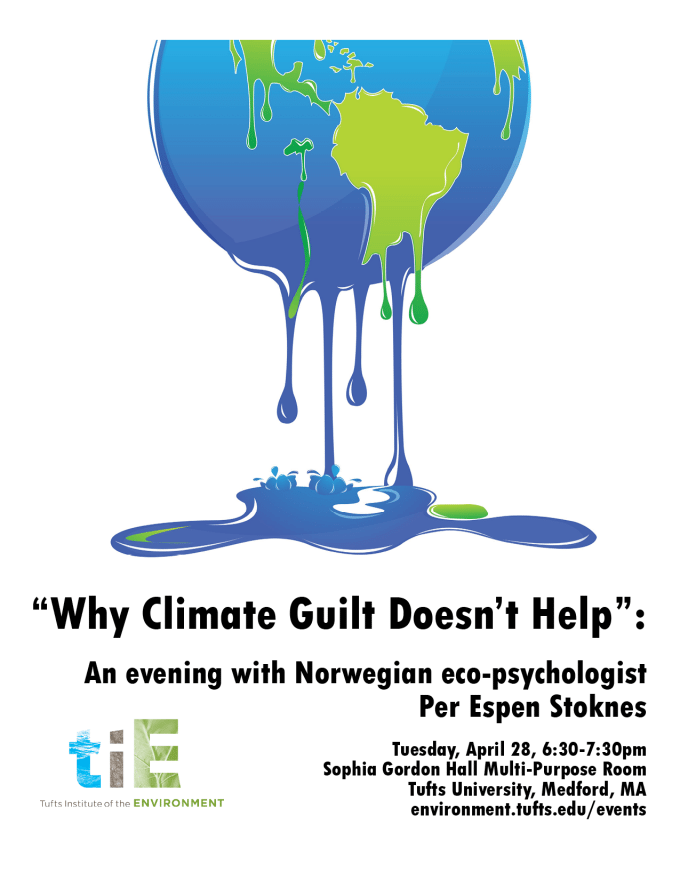“Why Climate Guilt Doesn’t Help”
Tuesday, March, 17th, 2015 News
TIE welcomes author and eco-psychologist Per Espen Stoknes to discuss public psychology of global warming.
Book: “What We Think About When We Try Not To Think About Global Warming”
Location: Sophia Gordon Hall Multi-Purpose Room, Tufts University, Medford, MA
Date: April 28th, 2015, 6:30-7:30pm
At this event, Swedish author, speaker, and eco-psychologist, Per Espen Stoknes will speak to the audience about the public psychology of global warming and issues discussed in his new book, What We Think About When We Try Not To Think About Global Warming. Audience members will have the opportunity to consider an interesting angle of the global warming and climate change discussion, ask questions of the author, and purchase the book and have it signed by the author. This event is open, and Tufts University warmly welcomes to its campus members of the audience from across the Boston metropolitan area.
If Global Warming Is So Urgent, Why Is There So Little Action? / Why Climate Guilt Doesn’t Help
An event with psychologist and economist Per Espen Stoknes, featuring his new book, What We Think About When We Try Not to Think About Global Warming.
Climate scientists has failed to convince the public by over-relying on catastrophe framings and a guilt inducing, overly rational information approach. Understanding human responses to climate change is clearly getting just as important as understanding climate change itself. The ‘psychological climate paradox’ refers to the fact as the climate science gets more certain, the public in wealthy nations become less concerned!
Rich in story and examples, Stoknes reviews recent psychological research and explores emerging strategies for how to overcome this paradox. A more compassionate climate communication can now rely on approaches that employ the power of social networks, reframing, nudging, storytelling and better climate response indicators. Also, the acknowledgement of grief, helplessness and despair, as well as reconnecting with an intimate and personal experience within the air, can be a deep source of motivation for a grounded hope. Stoknes seeks to answer the fundamental questions: Is humanity up to the task? Or are we humans inescapably locked into short-termism?
